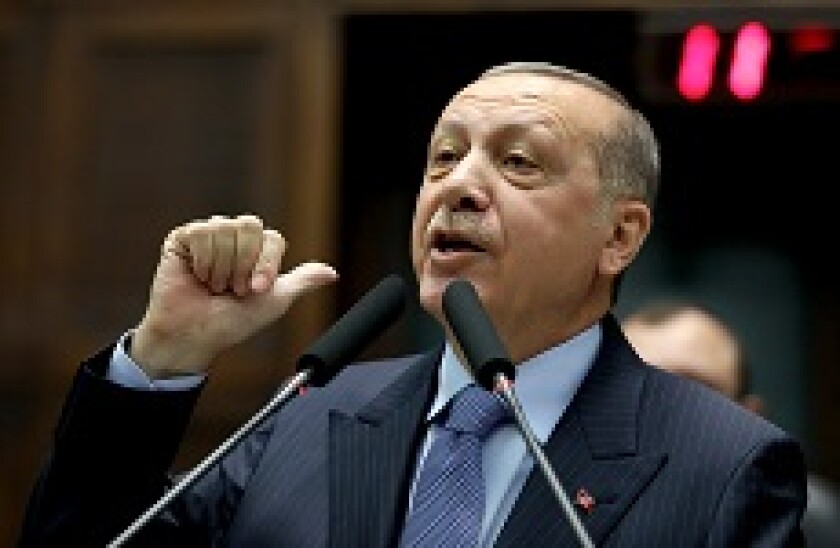In an interview with Bloomberg TV, broadcast on Tuesday, Erdogan said that Turkey needed to give off “the image” of a president in control of monetary policy.
The popular case for central bank independence is that political control of monetary policy leads to short-term monetary stimulation for political gain — and therefore long-term inflation. This is not an idle worry for Turkey.
The country’s economy has grown this year, as a result of government investment. The IMF raised its growth estimate for Turkey in March by 0.8 percentage points, predicting it would expand by 4.3% in both 2018 and 2019.
But many, including the IMF, fear this is too fast to be sustainable. Their warnings have been largely ignored by the Turkish government.
The president has also been scathing of calls to raise interest rates, and in the past has even gone as far to call himself an “enemy of interest rates.”
But there was hope from investors that the Turkish central bank would step in to hike rates nonetheless. The Central Bank of the Republic of Turkey (TCMB) did indeed move rates up in April and pledged to tighten monetary policy if it needed to in the future.
But Erdogan has seemingly poured cold water on any notion that the central bank might act in opposition to his political programme.
The pledge to take greater control of the central bank, should he be returned to power in next month’s elections, caused further weakening in the Turkish lira. One dollar is now worth Tl4.46, a record low.
The BIST 100, Turkey’s benchmark stock index, fell by almost 2% on Tuesday.
But if investors were surprised by Erdogan’s insistence that he should be in control of Turkish monetary policy, they shouldn’t have been.
Country analysts have repeatedly warned investors over Erdogan’s influence at the TCMB. He has not been shy in exerting influence over Turkey’s parliament or judiciary, and he has attacked journalists and political opposition to consolidate his power base.
Given Erdogan’s increasingly autocratic hold over the rest of Turkey, his public desire to influence the central bank should come as no surprise.
Many investors already acknowledged the president’s hand in setting monetary policy before today’s interview and, for some, that was a reason not to invest in Turkey.
Two Turkish IPOs were pulled earlier this month, on the back of economic concerns.
For those who did not subscribe to this murky reality before Tuesday’s interview, Erdogan has now crystallised it for them.
The president may change his mind on the direction of the Turkish economy and the need to curb its growth.
An emergency meeting last week suggests his government has recognised the economic threat facing the country. This means it is possible that the TCMB could indeed raise rates — but only with Erdogan’s approval.

